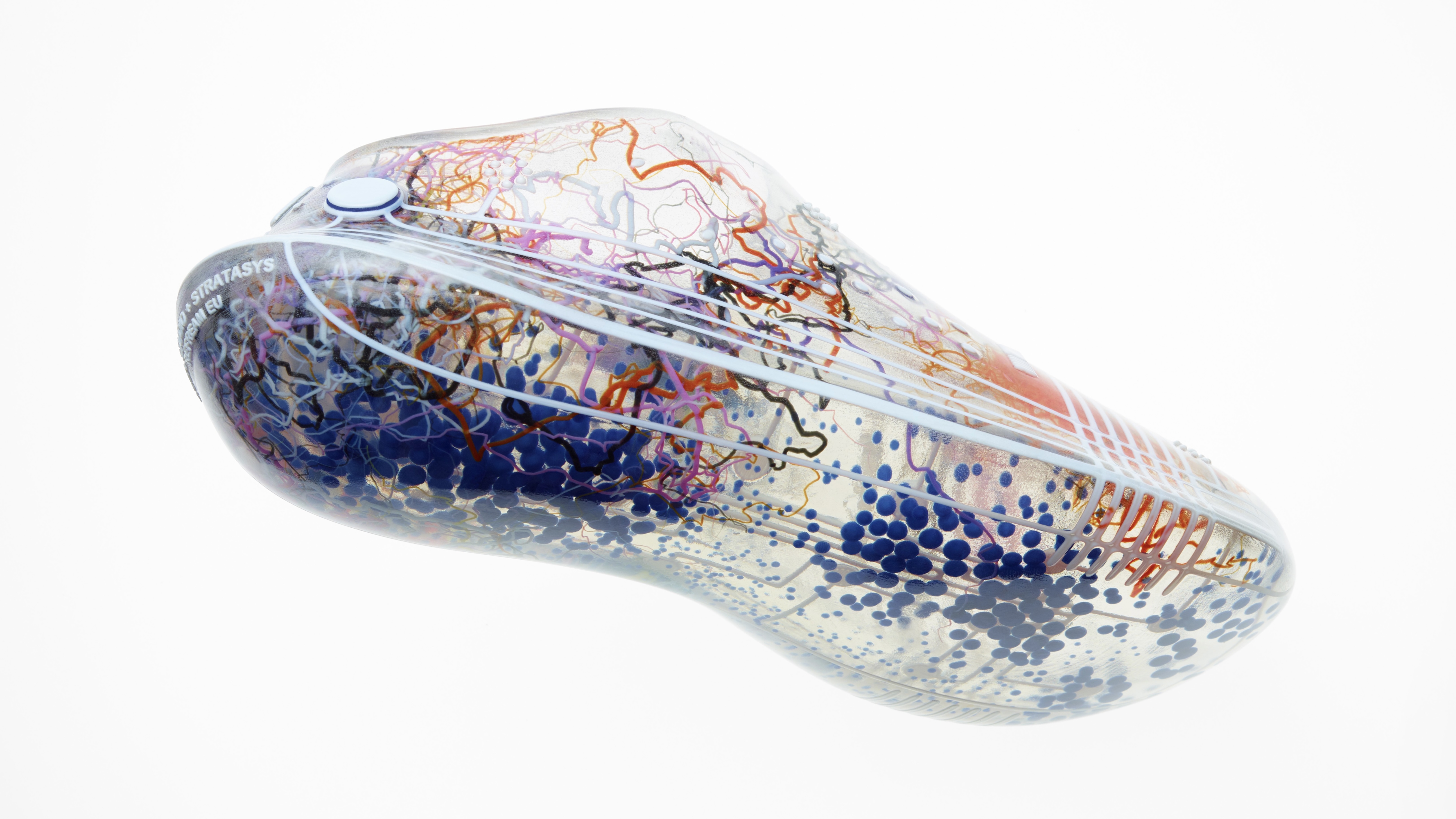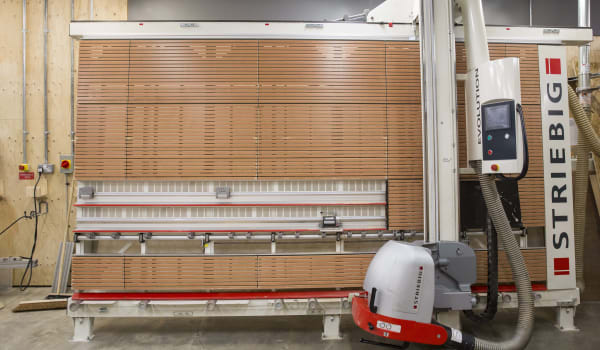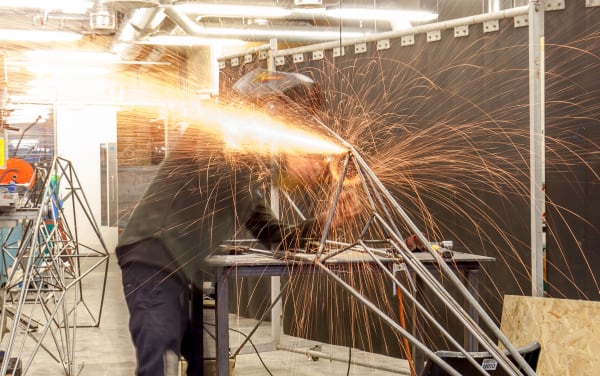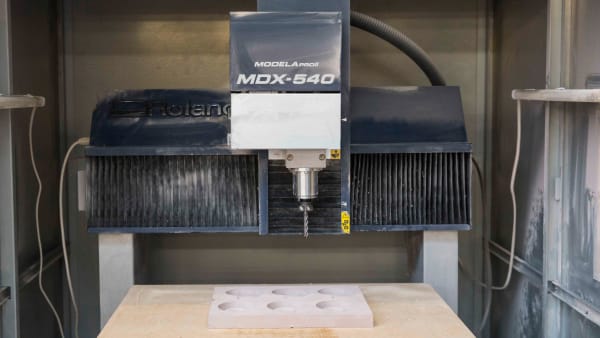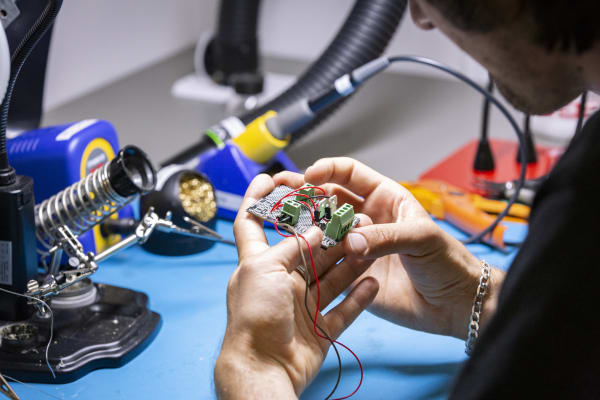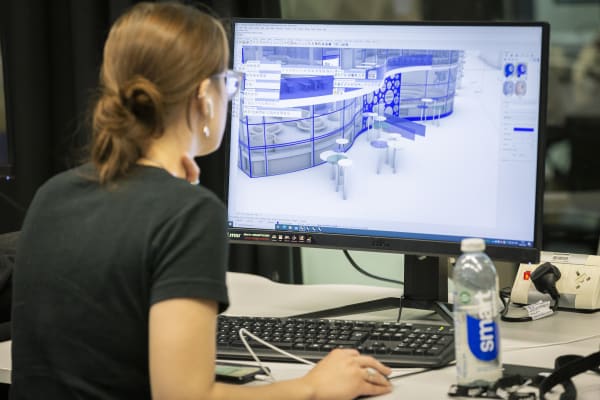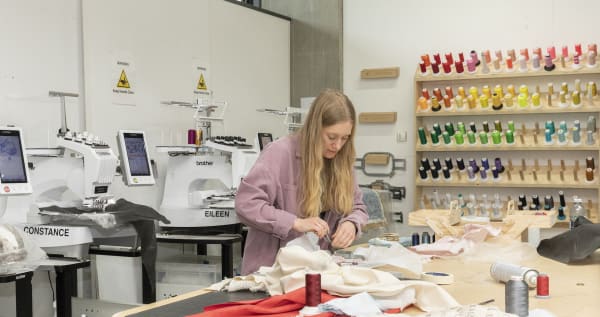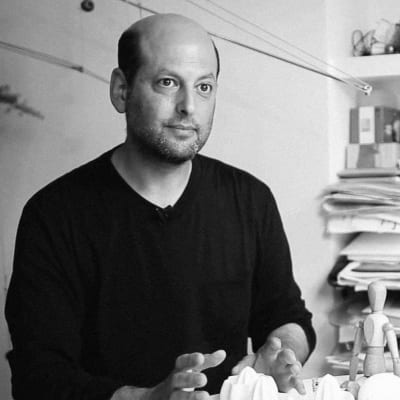Course units
MA Design for Industry 5.0 is unique as an industrial design course exploring purpose-driven entrepreneurship afforded by fourth industrial revolution technologies. The course centres on diversity, sustainability, human-centred design and matters of care in the contexts of manufacture enabled, for example, by artificial intelligence, blockchain, robotics and distributed manufacture.
MADI5.0 uses projects and design challenges as learning vehicles in which theory and practice are integrated. The academic content is organised under the headings: Design and Creative, Technical, Planetary, Ethical & Contextual, and Professional and Entrepreneurial.
The course grows through four units of study. This builds through internal group-forming, external collaboration, self-positioning, manifesto and project infrastructuring, and culminates in the execution of a major self-directed industry 5.0 project. Through it, you develop a design proposition that addresses the interrelated contextual, technological, and environmental concerns intimated by your practice.
External engagement is central to your studies, and the curriculum is actualised by collaboration with external practitioners, experts, organisations and enterprises, generating opportunities for innovation and knowledge exchange.
The course requires high levels of self-direction of MA Design for Industry 5.0 students, especially in the final two units of study. You will be supported through academic, pastoral and technical tutorials, and access to supervised facilities.
Unit 1: Care
This unit gives you an overview of the field(s) of study including the technological, environmental and entrepreneurial, viewed through the lens of “matters of care” and user-centred design methodologies. This unit establishes a community of practice where staff and students apply ethical approaches towards each other.
Unit 2: Collaborative practices for Common Good
The aims of this unit are to explore the potential of collaborative practice and to equip you with the ability to apply interdisciplinary approaches through collective agency. It supports you in building communities of practice across the College, drawing on interdisciplinary expertise and group working methods from a breadth of disciplines. The unit explores how relational and networked-based practices can create positive impact, based on a shared concern for a specific place, space or community of humans and non-humans, in order to create common and shared well-being (social, economic and environmental).
Unit 3: Values and Manufacture
In this unit, you will take what you have learnt in Units 1 and 2 to inform the strategic planning of an Industry 5.0 project. This unit spans the final ten weeks of year one and the first ten weeks of year two.
It progresses through four phases:
Project Manifesto
Project Value Proposition
Collaboration and Co-Design
Project Positioning and Differentiation
Unit 4: Action / Impact
In this unit, you will manage, implement and evaluate your final self-directed Industry 5.0 project.
Important note concerning academic progression through your course:
If you are required to retake a unit you will need to cease further study on the course until you have passed the unit concerned. Once you have successfully passed this unit, you will be able to proceed onto the next unit. Retaking a unit might require you to take time out of study, which could affect other things such as student loans or the visa status for international students.
Mode of study
MA Design for Industry 5.0 is offered in extended full-time mode which runs for 60 weeks over two academic years. You will be expected to commit 30 hours per week to study, which includes teaching time and independent study. This will be a combination of studio, workshop and research activities.
The course has been designed in this way to enable you to pursue studies, while also undertaking part-time employment, internships, or responsibilities to care for others.
Credit and award requirements
The course is credit-rated at 180 credits.
On successfully completing the course, you will gain a Master of Arts (MA
degree).
Under the Framework for Higher Education Qualifications, an MA is Level 7. All units must be passed to achieve the MA, but the classification of the award is derived from the mark for the final unit only.
If you are unable to continue the course, a Postgraduate Certificate (PG Cert) will normally be offered following the successful completion of 60 credits, or a Postgraduate Diploma (PG Dip) following the successful completion of 120 credits.
